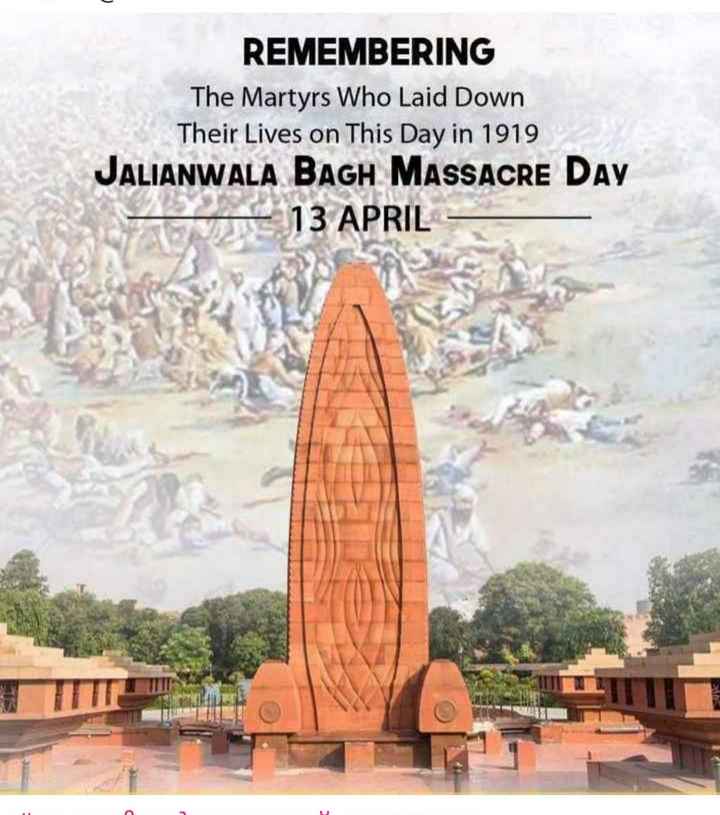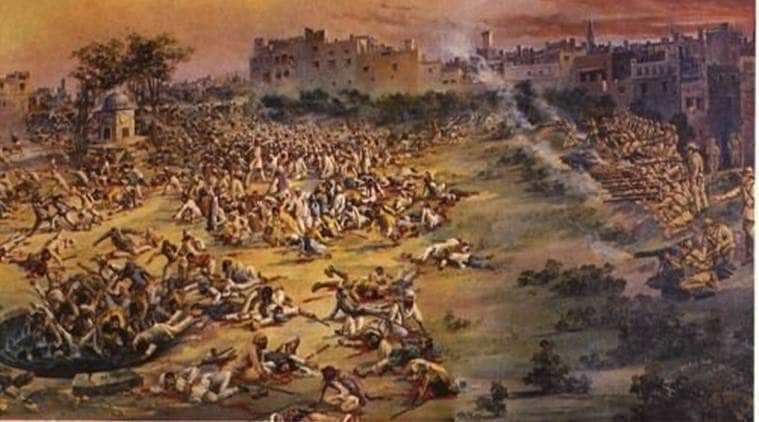- The act officially known as the Anarchical and Revolutionary Crimes Act, 1919 was passed in 1919 by the Imperial Legislative Council.
- It had authorized the British government to arrest anybody suspected of terrorist activities.
- It also authorized the government to detain such people arrested for up to 2 years without trial.
- It empowered the police to search a place without a warrant. It also placed severe restrictions on the freedom of the press.
- The primary intention colonial govt. was to repress the growing nationalist movement in the country.
- The British were also afraid of a Ghadarite revolution in Punjab and the rest of the country.
Jallianwala Bagh Massacre:
- The massacre took place on 13 April 1919 when troops of the British Indian Army under the command of Col. Reginald Dyer fired rifles into a crowd of Indians.
- The civilians had assembled for a peaceful protest to condemn the arrest and deportation of two national leaders, Satya Pal and Saifuddin Kitchlew.
- Dyer without warning ordered his troops to fire at the unarmed crowd which included children as well.
- The indiscriminate firing went on for about 10 minutes which resulted in the deaths of at least 1000 people and injured more than 1500 people.
Aftermath:
- In protest against the massacre Rabindranath Tagore gave up his knighthood.
- Gandhiji relinquished his title ‘Kaiser-e-hind’ bestowed on him by the British for his services during the Boer War in South Africa.
- Michael O’Dwyer, the then Lieutenant-Governor of Punjab, who had approved the actions of Dyer, was assassinated by Udham Singh in London in 1940 as revenge against the massacre.
Hunter Commission:
- In October 1919 the Secretary of State for India, Edwin Montagu, ordered the formation of a committee of inquiry into the events in Punjab.
- Referred to as the Disorders Inquiry Committee, it was later more widely known as the Hunter Commission (Not to be confused with Hunter Education Commission).
- Still there are long-standing demands in India that Britain should apologize for the massacre.
- UK PM Repeats ‘Deep Regret’ for Jallianwala Bagh Massacre: 10 April, 2019
- UK Prime Minister Theresa May reiterated the UK government’s long-standing expression of ‘deep regret’ over the April 1919 Jallianwala Bagh massacre, calling it a ‘shameful scar’ on British Indian history.
- Since 2019 was the centenary of the horrendous act there was a growing demand from many quarters for the formal apology including Indian diaspora and Jeremy Corbyn (Opposition Leader of the Labour Party).
- Earliar the government of Punjab has sought an apology from the British government for the Jallianwala Bagh massacre.


